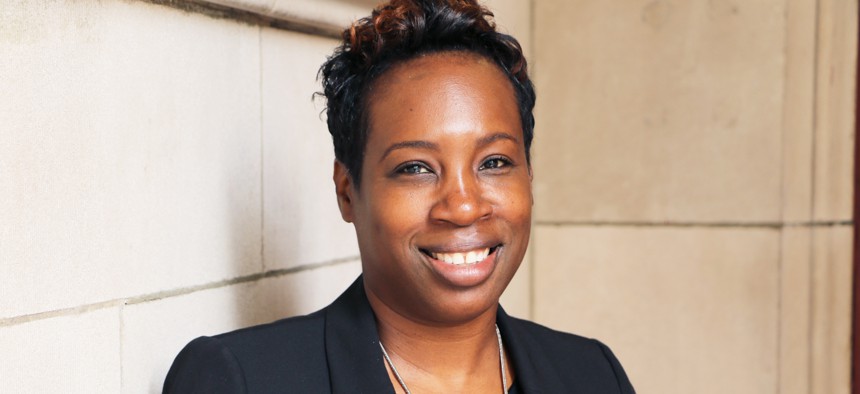Nonprofits
Commentary: Parenting from behind bars
How a nonprofit helps incarcerated women continue being mothers

Alethea Taylor, executive director of Hour Children Image courtesy of Alethea Taylor
Women have become the fastest-growing segment of the prison population. Overall, the imprisonment of women in the U.S. has seen a 525% increase over the last 40 years, from 26,000 in 1980 to over 168,000 in 2021 – a rate of growth that is twice as high as that of men.
The Sentencing Project attributes the staggering increase to “more expansive law enforcement efforts, stiffer drug sentencing laws, and post-conviction barriers to reentry that uniquely affect women.” Most women are in prison for nonviolent offenses, such as drug-related crimes. More than 60% of women in state prisons have minor children, and most of them are single mothers.
At Hour Children, we know that women don’t stop being mothers while they are incarcerated and that parenting must go on, even from behind the prison walls. For many, if not most children, their mother is their primary caretaker. A report from the Annie E. Casey Foundation says more than 5 million children have had a parent incarcerated at some point in their life. A Black child is nine times more likely than a white child to have a parent in prison, even though when it comes to drug offenses – a driving force of female incarceration – data reveals that drug use is comparable across racial lines, or even higher for whites. Yet, incarceration rates don’t reflect this.
A mother’s incarceration is traumatic, with far-reaching and negative consequences for a child, including increased risks of suffering from PTSD, depression, anxiety, having trouble at school, being suspended or expelled, and a 40% higher chance of being incarcerated themselves. Keeping the parent/child bond strong is one way to ameliorate some of these adverse outcomes for a child.
But visiting is often difficult, with distance and cost being among the obstacles. Jocelyn’s daughter Annie was just shy of her fifth birthday when Jocelyn was incarcerated. When no family member was able to take Annie in, she was placed in foster care. While the foster family intended to bring Annie for visits with her mother, things quickly became complicated. The scheduling was difficult with other children in the home, and it was also too expensive to bring Annie to the prison regularly. Our organization stepped in, picking Annie up at her door on visitation days and staying by her side as a supportive presence as she enters the prison and goes through the screening process. Annie now looks forward to these visiting days as much as her mother does, and their bond remains solid.
Phone privileges are almost as important as visitation. A 2014 study of incarcerated women found that those who had any phone contact with a family member were less likely to be reincarcerated within five years after their release. Therefore, we offer phone calls in our parenting center, so incarcerated women can talk to their children and not worry about whether they have funds on their phone cards. We also help facilitate an incarcerated mother’s communication with her child’s school, so she can stay connected to her child’s education.
When a mother is incarcerated, she misses out on day-to-day life; all the little and big things that are at the center of a child’s world … making a new friend, going to the prom, school issues and problems with homework. Because our staff can assist the women on how to communicate with their children, and even help the women offer homework help, a mother is able to stay deeply connected with her children. A mother doesn’t stop parenting because she is incarcerated, she must learn a different way to parent.
Maintaining strong mother and child/family bonds provides a woman a foundation for successful reentry and reintegration into the world outside prison, which, in turn, improves outcomes for society at large. A research study published in 2008 found that incarcerated people who were visited were 31% less likely to reoffend than those who were not. Our organization’s historical recidivism rates for female participants in our community-based programs is less than 5% annually, compared with New York state-wide rates of 29% within three years.
Mother and child contact during incarceration provides immense benefits, during both incarceration and reentry. Prisons and jails across the country must make family contact safe and equitable. The human toll of female incarceration is larger than any single story. It affects us all. We know that giving a woman the foundational support needed to reintegrate into the community doesn’t just benefit her but benefits her children and society.
Alethea Taylor is executive director of Hour Children, a member of the Independent Commission on New York City Criminal Justice and Incarceration Reform and an adjunct associate professor at Hunter College.
NEXT STORY: More severe weather in NYC could have hidden dire effects, here’s how we can build resilience
